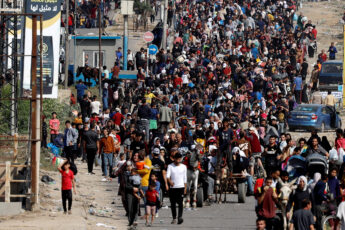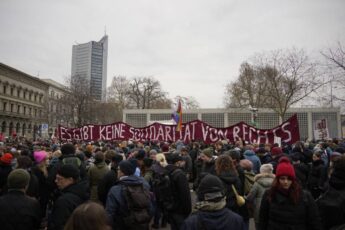
by TRANSNATIONAL MIGRANTS COORDINATION
The putrid air of European anti-migrant policies does not stop at the EU institutional borders. Since the beginning of 2024, about 6000 migrants have already crossed the English Channel. Last weekend nearly 750 migrants arrived in the UK by small boats, and the British Prime Minister Sunak and his government are determined to wage war on them. In the United Kingdom, as in Italy, France, and everywhere in Europe, migrants are rejected in the name of racism, relying on the resurgence of authentic national values and the externalisation of borders. A few days ago, the EU definitively approved the Pact on Migration and Asylum, endorsing the collective efforts of member states to expedite migrant deportation procedures, build detention centers, and hinder the acquisition of asylum rights. In this perspective, in the UK, cutting the number of migrants is the only government concern, even at the cost of being challenged by their own party as is happening with the Rwanda Bill. Last week Sunak met the president of Rwanda to agree on how to deport asylum seekers to Rwanda, although the parliamentary procedures for passing the bill are slowed down due to the internal opposition. While the Labour Party doesn’t hinder the bill for electoral interests, this government is looking for other countries to replicate the Rwanda deal before approving it.
Parliamentary opposition did not stop Sunak’s government from taking measures aimed at reducing the number of migrants on British land. For the British government, migrants are nothing more than leeches sucking what little is left of British prosperity. Therefore, if they want to come to Britain, migrants must be able to pay their stay – as the threshold for gaining a Visa has been increased – and ready to be exploited. The government directly attacked migrants with a Health and Care Visa, banning them from bringing their own dependents with. Most of them are women, who earn no more than £21,000 per year, and that have denounced the exhausting working hours to which one must add care working at home. At the same time, these new measures will affect also the migrant partners of British citizens who are no longer welcome unless the British partner earns enough to pay for their welfare – already cut to the bone and privatised. Thus, family is once again affirmed as the stronghold of social reproduction and patriarchal hierarchies, with the male breadwinner in charge of supporting the other members. All this workforce should be replaced by genuinely British labour, according to the government’s “Back to Work Plan”, to put unemployed, chronically ill, and disabled citizens to work.
In this framework, racism is ideologically presented as the panacea for the UK economic crisis, while militarism makes its way into the British society as Sunak is policing not only the borders but the cities to cope with millions of men and women who have been protesting against the war on Gaza and its effect within the British society. Despite all the denunciations, arrests, and threats, men and women are still taking to the streets and shouting loudly that the real danger is the UK racist, neoliberal and repressive policies, not migrants. It is again from connections that we must start, knowing that the opposition to the war on migrants must go hand in hand with the rejection of the war on workers and that there is no peace for migrants without freedom for Palestinians.





